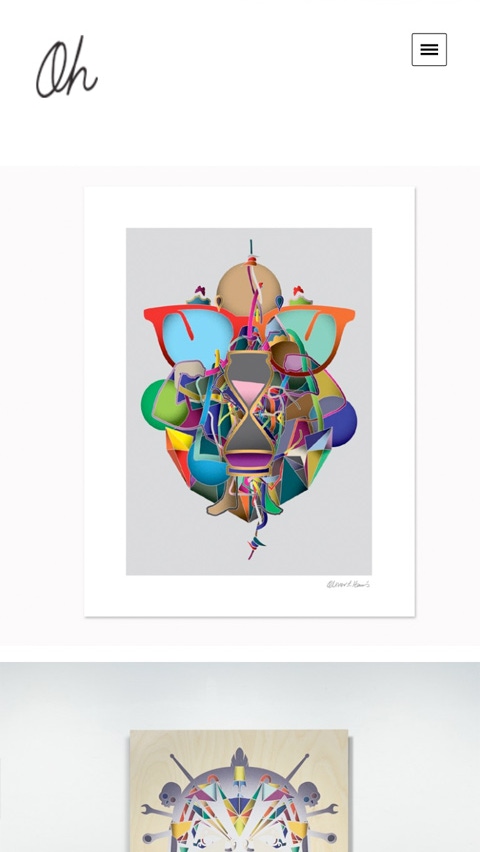Life is short, art is long
View Oliver & Hans artist portfolio
Hailing from Denmark and the Republic of Korea respectively, Oliver & Hans began collaborating in 2007, launching their first website together in 2016. The artist duo makes art that uses a range of media including painting, collage, print and installation.
Their work encompasses a visual language embedded in a process of formal abstraction - investigating the construction and subsequent deconstruction of form. Through this process the themes, forms and motifs of their work are built up and re-worked over time. With each iteration new works are formed in which the dialogue is in a constant state of flux.
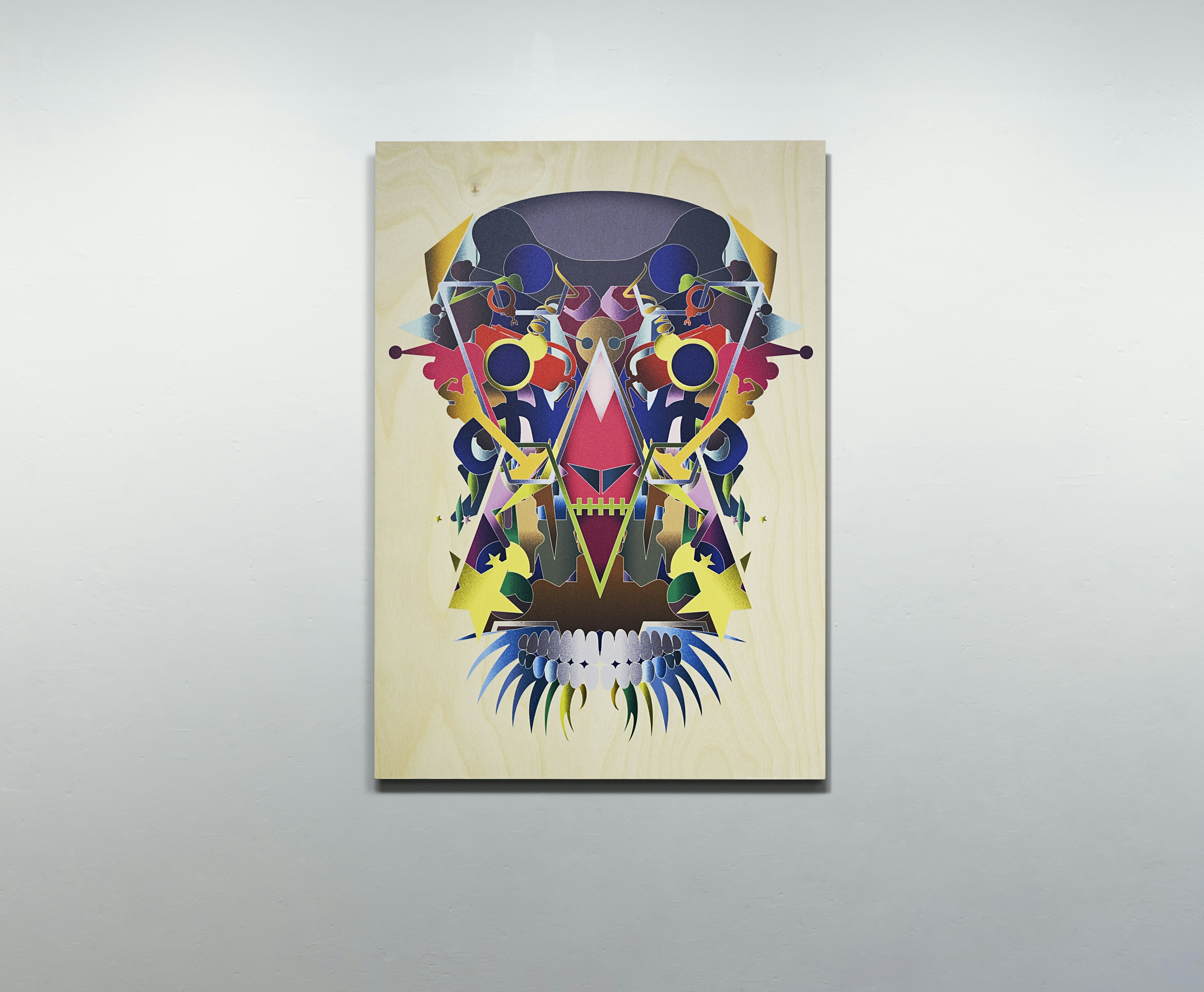
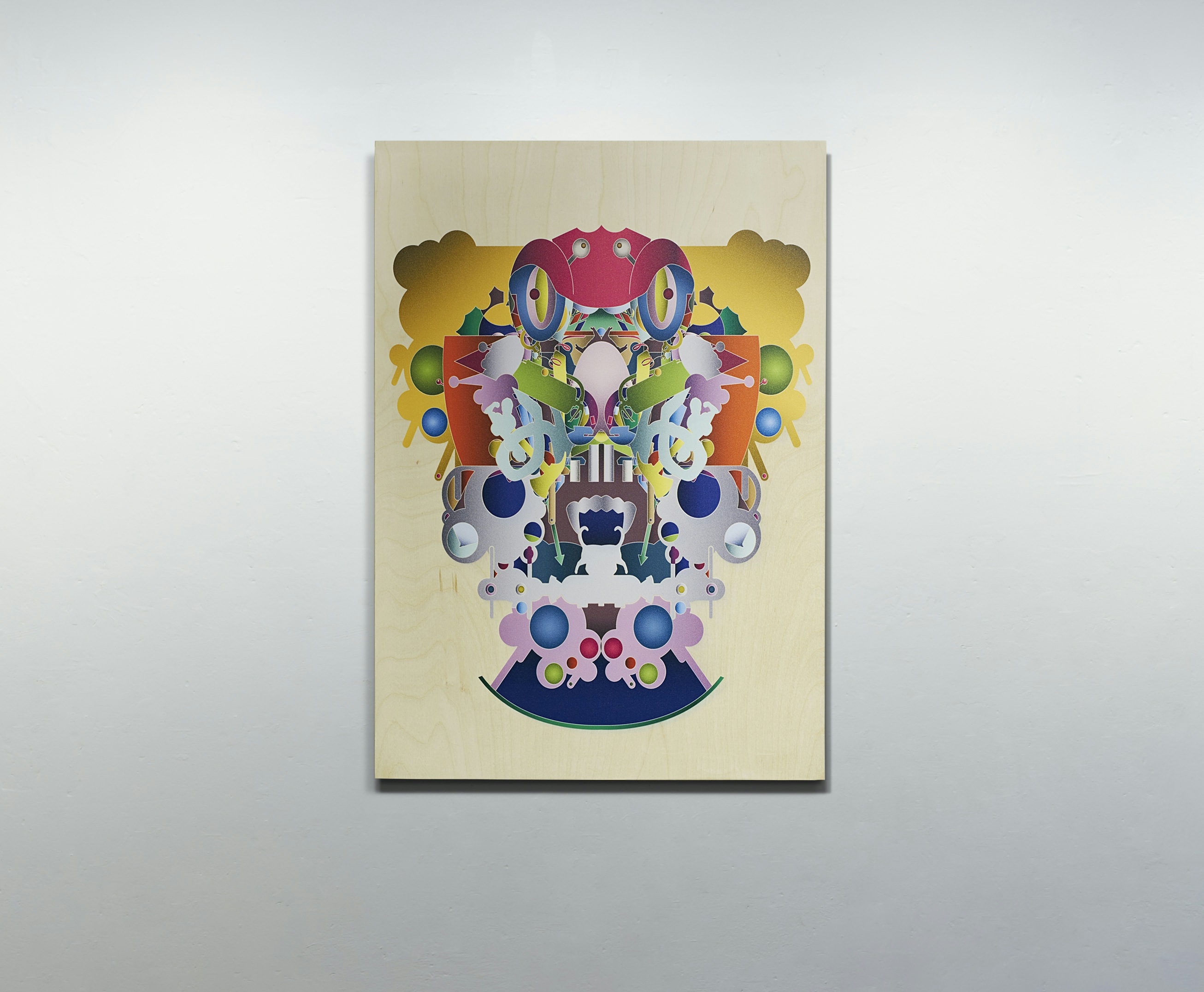
Concerned with intimacy, memory, and obsession, their work is characterised by it's signature graphic style; portraits, outlined in thin lines and pared down to their most basic details, are hallmarks of there visual style.
Drawing on a contemporary visual language from computer graphics to road signs and billboards, Oliver & Hans creates landscapes and portraits in an instantly recognisable signature style defined by a stripped-down vocabulary of schematic lines and blocks of colour.
Interested in the ways reality can be represented and reflected, Oliver & Hans often reduce iconic subject matter (like close-up portraits, landscapes, and the body in motion) to simple geometric forms, typically rendering faces as a series of piercing dots and lines.
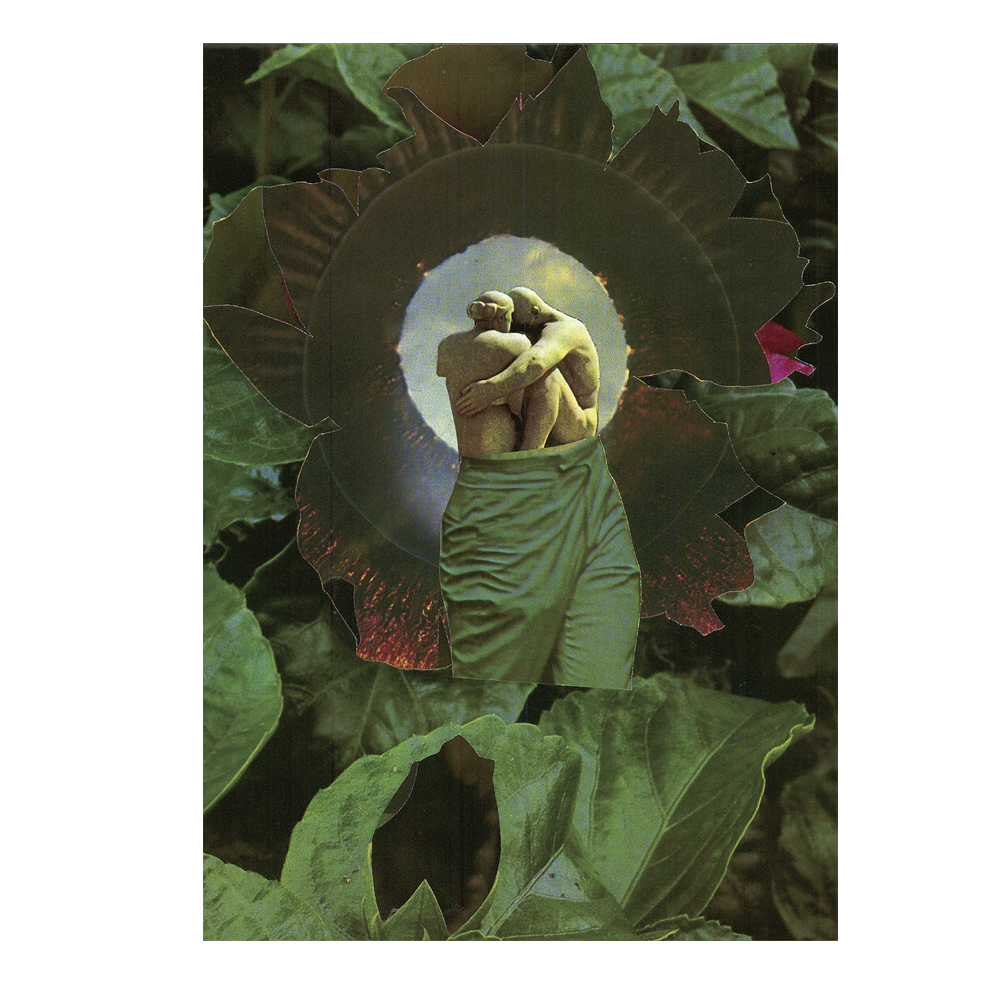
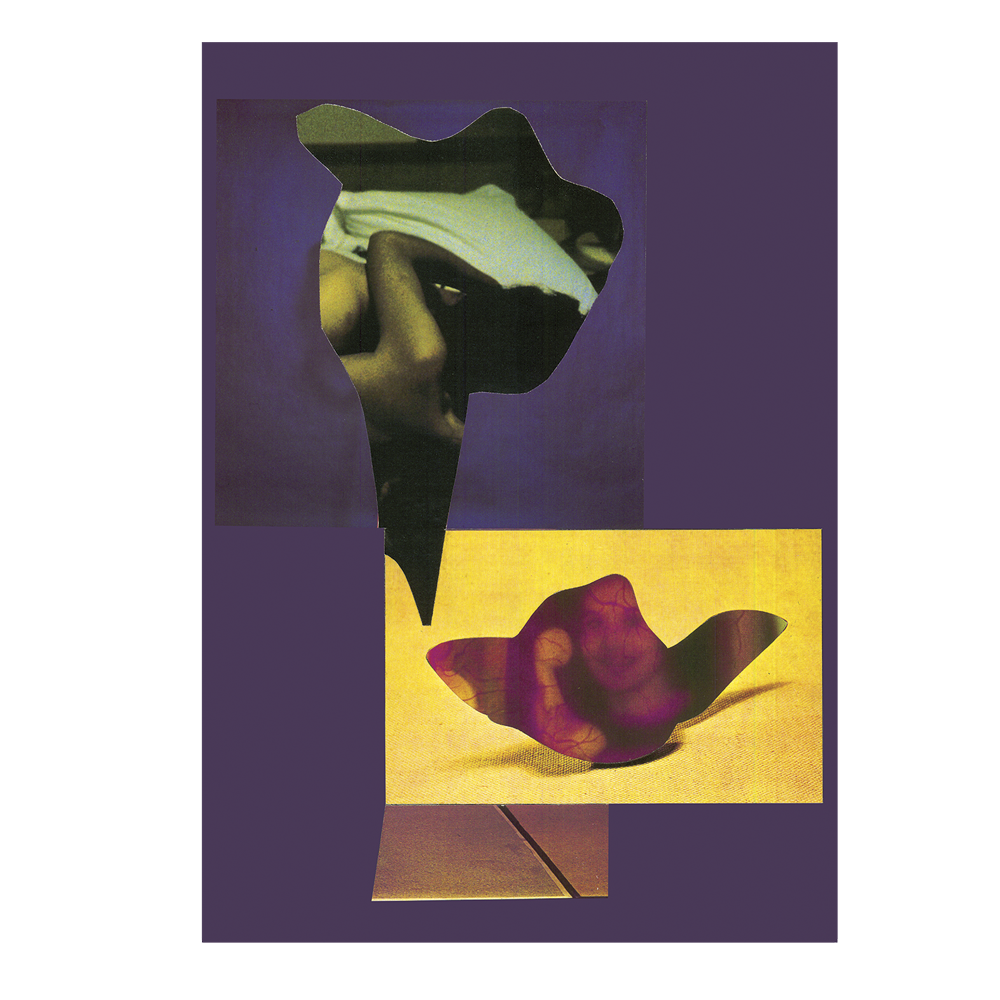
We spoke to Oliver and Hans about their process, inspiration, and plans for the future:
FAB: Building faces, or masks, with symmetry is a continuing theme in your work. Does this derive from a desire to explore emotion, character, or expression, in people?
OH: "Before making the mask series we researched Rorschach art by artist - Andy Warhol, H.C Andersen, Henri Matisse and William Morris. The Rorschach technique helped us to discover the spiritual and poetic quality of repetition in our work."
"The pattern of our work of art is equal to the form of a piece of music."
"It became a dogma rule for how we build up the layout for all the masks. The pattern of our work of art is equal to the form of a piece of music. We like to achieve the same effect of a good melody. A catchy melody makes you smile and keeps looping in your memory."
"The mask collages represent distinctive personas that we are meeting in the real world. The mask collages consist of many layers. The depth of these layers illuminates many faces of a single persona."
FAB: Where do your sources come from? Do you have specific mediums, cultures or periods of history that you take inspiration from?
OH: "Our sources come from old sketchbooks, postcards, found objects and history photo books that we buy in local flea markets."
"We are using our differences of nationality, culture and history as a DNA in our work."
FAB: Looking at your portfolio it seems your work has moved from found media - collage pulled from published sources, to more graphic pieces that you’ve generated from scratch. Is that an evolutionary phase-shift in your process or is it an experiment?
OH: "We always pursue in defining new directions in art. It's always been the code in our work that we mix the analogue and digital working methods. The mask collages are made from years of collected ideas, solid paper to cut and paste, and then scan, redraw, print and transcribe it to graphic art pieces."
"You are right - it's an evolutionary phase-shift in our process that the work is becoming more graphic. We think of it as an important illustration of modern art innovation. Digital media is part of the creative process - we can make quick changes to the artworks and send it back and forth to Seoul/Copenhagen using web online spaces."
"Digital media is part of the creative process."
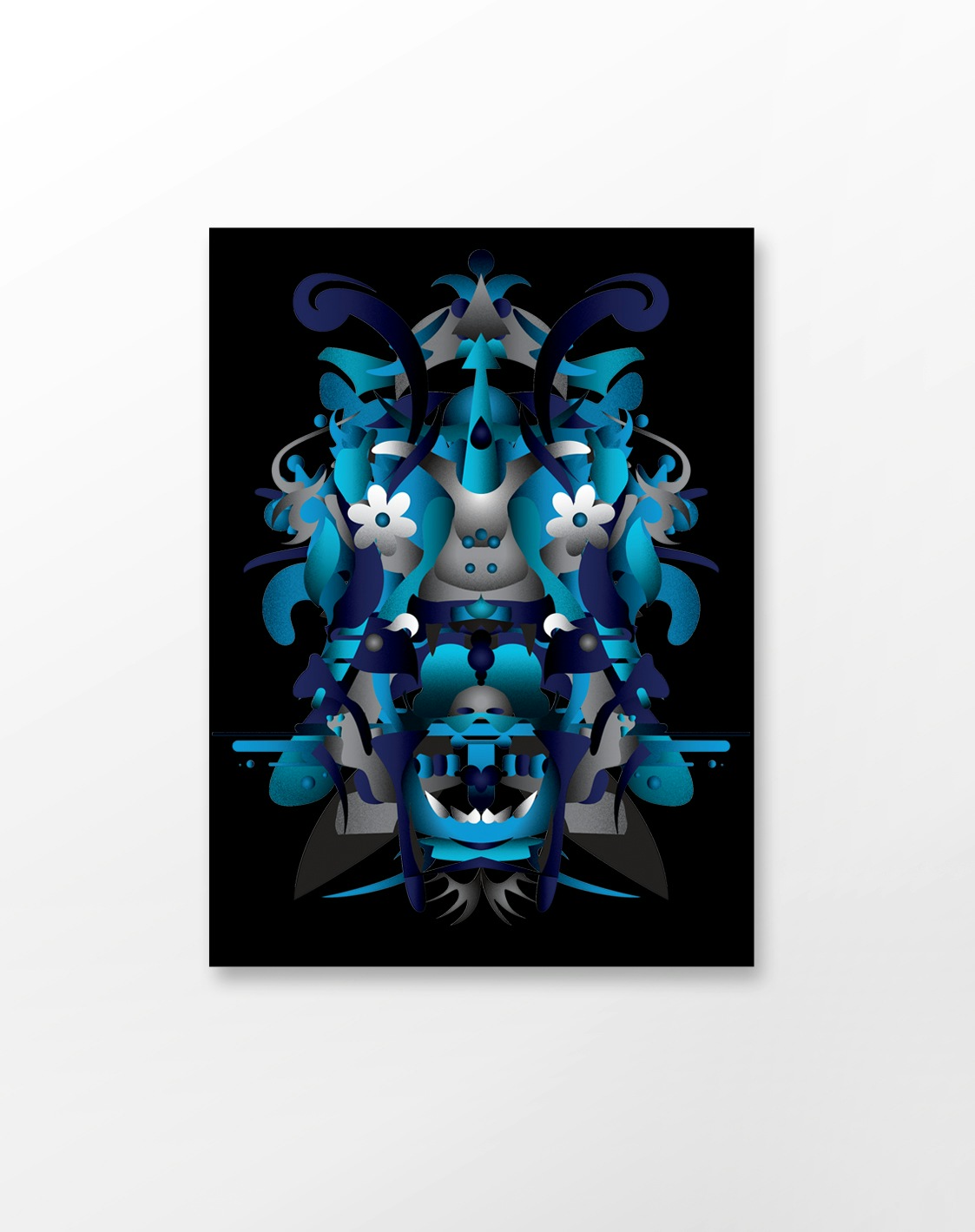
FAB: Do you use stock illustration in your collages? It looks like that might be part of the comedy of the pieces; a sort of evolution in the found media you use - and forms some of the message your expressing in your work. Is that what’s happening or am I just looking to hard into it?
And does that help you control the vast amount of possible inputs (and outcomes) of the process of creating work from disparate shapes and media?
OH: "The used imagery for the mask collages are inspired by stock illustration, pictograms and symbols. We are using bold graphic metaphors, because we consider that this visual language interconnects to a broader audience. This visual language is recognisable and therefore the viewer gets attracted to it right away."
"At first glance the art looks easy and simple to decode, after a closer look you realise all the layers of information. You can compare the mask collages to a stuffed duck! – full of spices and various tastes. The exciting thing about art is - the explanation of a given art piece can be fixed, but the viewers interpretation of it can be very different."
"You can compare the mask collages to a stuffed duck! – full of spices and various tastes."
FAB: What would you like to be working on in the future?
OH: "Our dream for the future is to collaborate with some of the leading print workshops in Europe and Asia. The plan is to exhibit these prints. We like our work to be associated with style and of course, humour."
FAB: Any advice you’d like to impart on our craft to digital fine artists going into the field?
OH: "Follow your interests and communicate it through your art. Team up with creative people that share the same interest and obsession."
"Collaborating with others help you ask lots of questions about what approach to life you want."
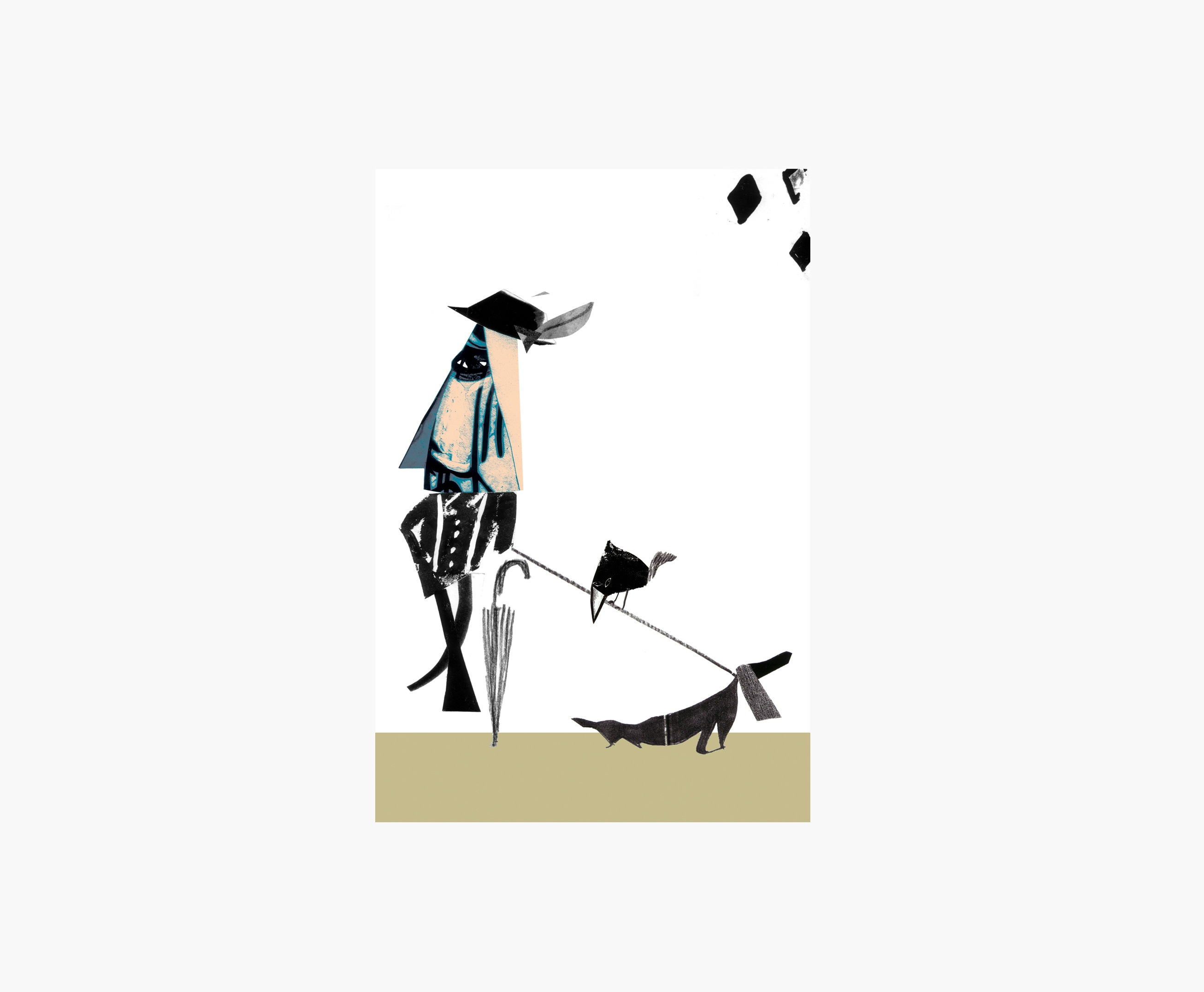
FAB: Anything you’re working on at the moment that you can share, or any sort of personal directions you’re embarking on that serve your career
OH: "Right now Hans is collaborating with Kawalabo lithography printmaking workshop in Japan. Hans and Kawalabo are producing limited edition mask prints. Oliver is working on drawing new clipart for the summer project 2017."
"Life is short, Art is long!!"
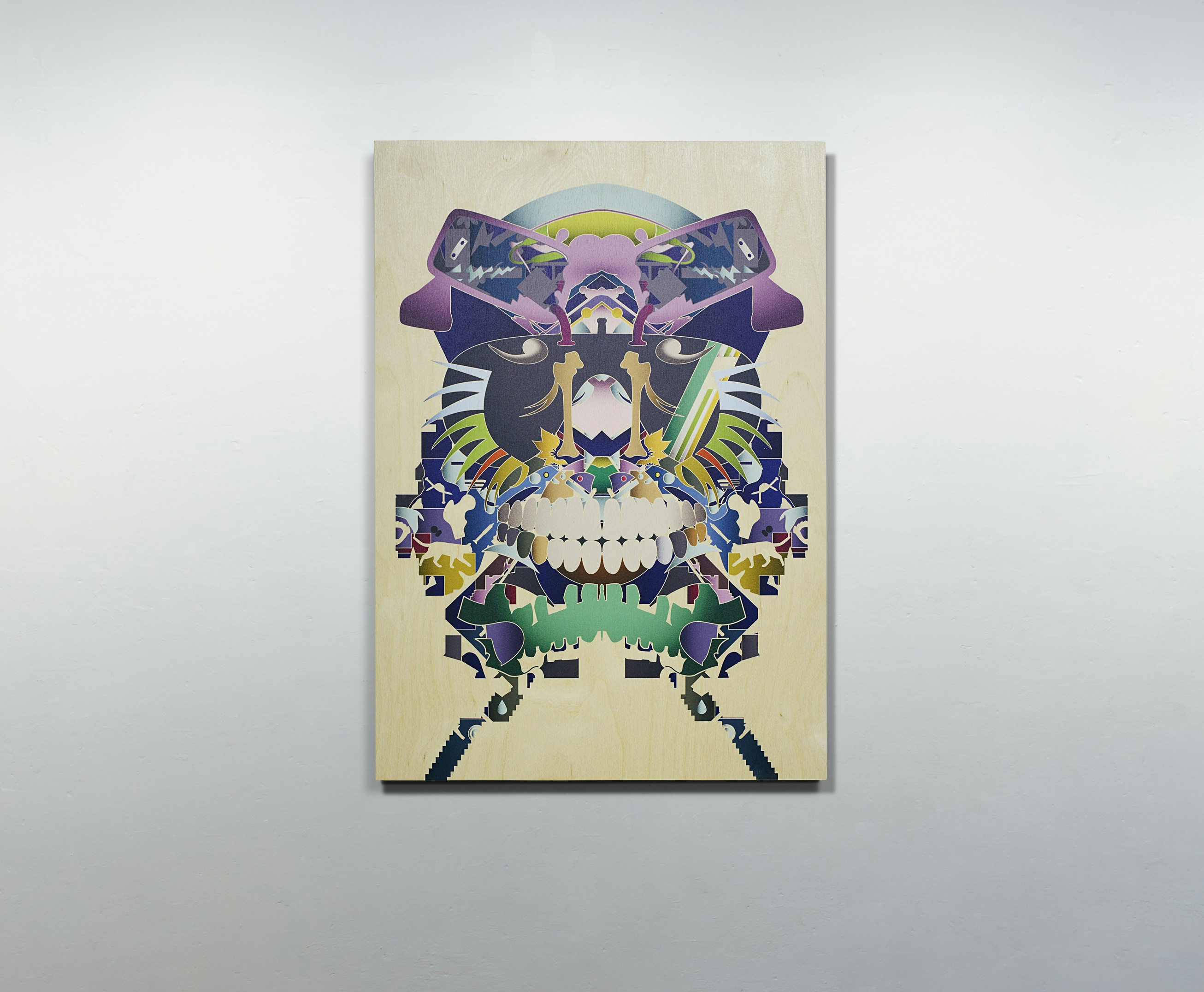
Oliver & Hans use Canvas for their site with thumbnail grid layouts that allow easy viewing of each piece in each of their series of work. Lightbox layouts for projects open up to allow their viewers a glimpse into the detail and intricate nature of the works whilst at the same time allowing each piece to be viewed independently.
The artists back up their portfolio with a blog that reveals the behind the scenes work on their pieces. Featuring video of their experiments and their installations and shows, the blog serves as an excellent document of their process, and of their world.

